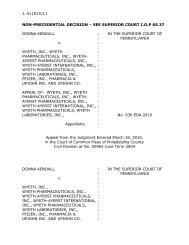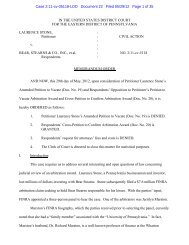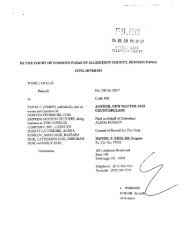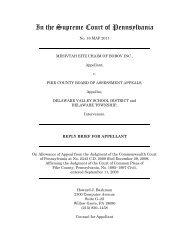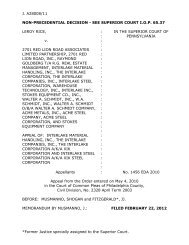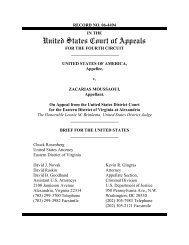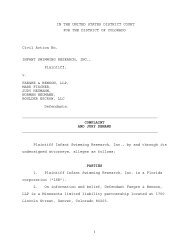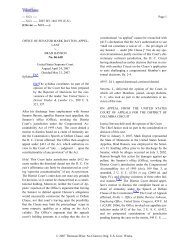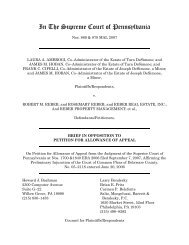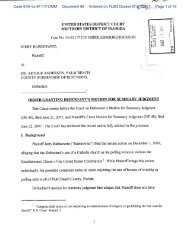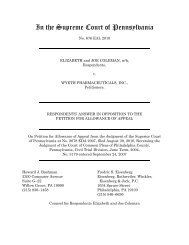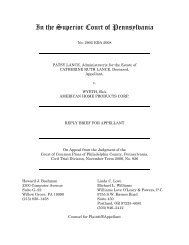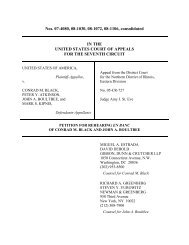DePinto v. Bayonne Board of Education
DePinto v. Bayonne Board of Education
DePinto v. Bayonne Board of Education
Create successful ePaper yourself
Turn your PDF publications into a flip-book with our unique Google optimized e-Paper software.
Case 2:06-cv-05765-JAG-MCA Document 18 Filed 09/19/2007 Page 26 <strong>of</strong> 28<br />
the test articulated by the majority for elementary school students, a “legitimate educational<br />
reason,” to replace the test set forth in Tinker. Further, the Circuit’s holding is not based on any<br />
modified Tinker test. This Court is unpersuaded that the test articulated in Tinker – that a<br />
student may not be punished for merely expressing views, unless the school has reason to believe<br />
that the speech or expression will “substantially interfere with the work <strong>of</strong> the school or impinge<br />
upon the rights <strong>of</strong> other students,” – no longer applies to elementary school children in the Third<br />
Circuit. Thus, this Court’s analysis, under Tinker, stands. Supra, at 13-14.<br />
B. Irreparable Harm to the Plaintiffs<br />
Plaintiffs must also show that they will suffer irreparable harm if the injunction is denied.<br />
See Sypniewski, 307 F.3d at 252. Here, Plaintiffs seek to exercise their First Amendment right<br />
to free speech by wearing the Button. Defendants argue again that they do not seek to censor the<br />
message <strong>of</strong> the Button, but only the image. This Court has already addressed and dismissed this<br />
“no harm, no foul” argument. Supra, at 15. Further, the Third Circuit has recognized that “[a]<br />
student whose protected expression is stifled suffers an injury that cannot be undone.” Id. at 258.<br />
This Court agrees. Plaintiffs have established that they will suffer irreparable harm if the<br />
injunction is denied.<br />
C. Irreparable Harm to the Defendants and the Public Interest and Balancing <strong>of</strong><br />
Hardships<br />
Once Plaintiffs have demonstrated a likelihood <strong>of</strong> success on the merits and irreparable<br />
harm, a court should consider whether granting the injunction would irreparably harm the<br />
responding party and whether an injunction is in the public interest. These issues should be<br />
balanced along with the first two requirements: likelihood <strong>of</strong> success on the merits and<br />
irreparable harm to the plaintiffs. Delaware River Port Authority v. Transamerican Trailer<br />
26



